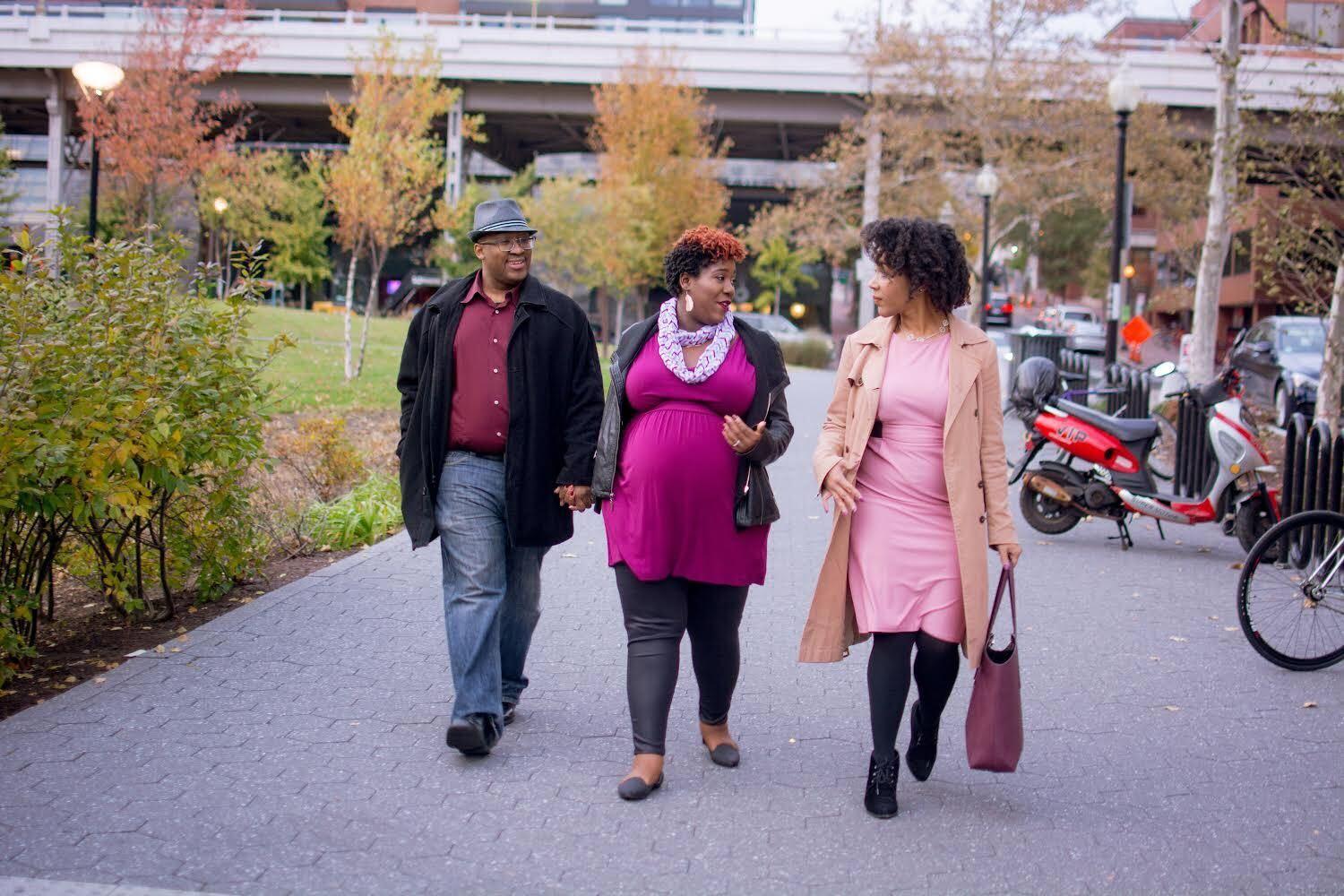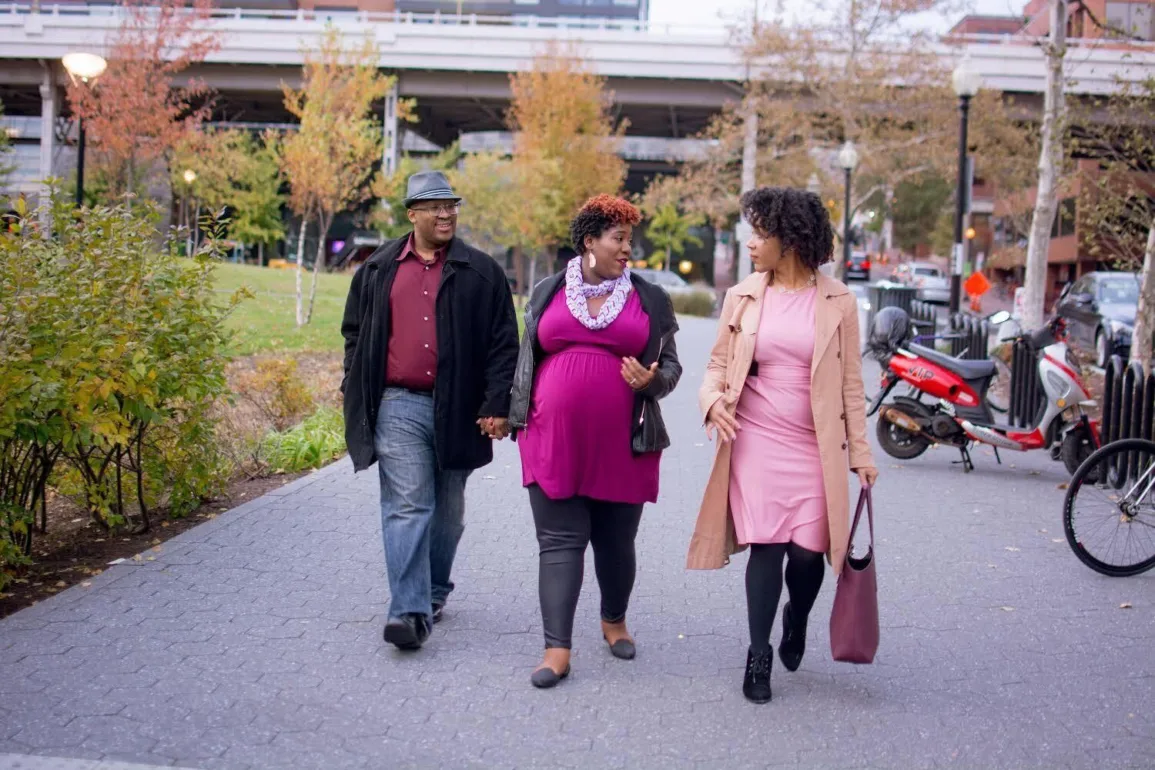
Washington D.C.’s Black Maternal Environments
In DC’s Ward 7, which is predominately Black, the levels of particulate matter are the highest as result of the multiple industrial facilities and freeways bisecting the ward. Particulate matter exposure has been connected to low birth weight and an increased chance of developing asthma later in life. Black people are 40% more likely to have asthma than white people, and Black women are 84% to have asthma than Black men.
Yet even in the face of many of these daunting statistics, full-time doula Samantha Griffin approaches Black maternal health from a place of joy.
“A lot of folks get into this work specifically around maternal mortality, but I like to think that we should aim so much higher than just staying alive during childbirth,” said Griffin, the founder and CEO of DC Metro Maternity.
Griffin, who is a certified birth doula, postpartum doula, and certified childbirth educator, manages a ten-person team of Black women who support all types of birthing peoples through their childbirth and the postpartum journeys. And, for some DC-based clients, that might mean battling through unexpected environmental issues.
“When there’s a water quality issue, it’s a huge thing if you are trying to make formula for a baby because they don’t have much of an immune system,” said Griffin, who hosts a podcast called “Musings of a Black Doula.”
Black Maternal Health Week at Howard University
In honor of Black Maternal Health Week, first year undergraduate researcher Hall and the Freshman College of Engineering and Architecture Council organized the D.E.A.R. (Dedicated Efforts towards Assistive Resources for Women) Mama drive to spread awareness about the decline of Black Maternal Health, support existing organizations and caucuses making a difference in the community, and celebrate Black motherhood. Another ongoing effort to address local Black maternal needs and health is a donation drive with Mary’s Center.
When discussing the health of Black birthing people, the importance of including environmental justice in the maternal health space cannot be overstated. As many statistics have shown, exposure to microplastics, air pollution, contamination, and other hazards puts vulnerable populations at an alarmingly high risk for pregnancy complications, birth defects, and lifelong health issues.
To gather a multi-faceted look on maternal health, Quarkume is committed to having her team of researchers work with existing community organizations that are already asking many of the same questions they are, while providing them with the data to solidify their claims.
“Human rights issues like Black maternal health are multifaceted, which means they require multiple solutions on multiple levels,” Hall said. The combination of different perspectives is necessary in research so that we can create effective, informative, and expansive solutions towards maternal health equity. Collaboration is a catalyst for change.”


